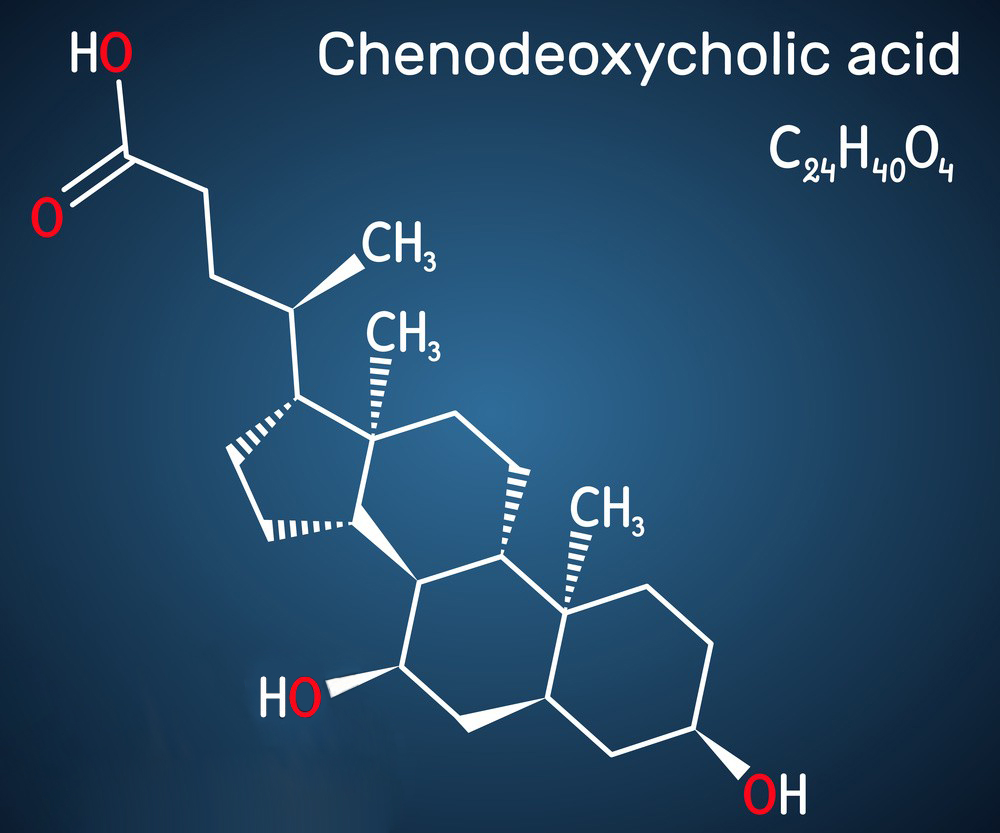TUDCA(Tauroursodeoxycholic acid) is a bile acid derivative that has been studied for its potential health benefits, particularly in the context of liver and digestive health. It consists of three main components: taurine, ursodeoxycholic acid, and a sulfate group. Here’s a breakdown of these components:
Taurine: Taurine is an amino acid that plays a crucial role in various physiological processes. In TUDCA, taurine is linked to the ursodeoxycholic acid portion, forming a conjugate that helps improve the solubility and therapeutic properties of ursodeoxycholic acid. Taurine has antioxidant and anti-inflammatory properties, making it beneficial for the liver and overall health.
Ursodeoxycholic Acid (UDCA): Ursodeoxycholic acid is a natural bile acid that is found in small quantities in the human body. It is extracted from the primary bile acid chenodeoxycholic acid. UDCA has been used to treat various liver and gallbladder disorders and can help to dissolve gallstones. In TUDCA, UDCA is conjugated with taurine, enhancing its solubility and making it a more effective therapeutic agent.
Sulfate Group: The sulfate group is a chemical moiety attached to the taurine-UDCA conjugate. This sulfate group also contributes to the solubility of TUDCA and may influence its biological activity.
TUDCA is known for its potential protective effects on the liver and its ability to support digestive health. It is available in supplement form and is often used to support liver function, especially in cases of liver disease, cholestasis, or other conditions where liver health is a concern.

Efficacy and Role of TUDCA
TUDCA, or tauroursodeoxycholic acid, is a bile acid that has been investigated for its potential therapeutic uses in various medical conditions. It is important to note that while some studies have suggested potential benefits, more research is needed to establish its efficacy in specific applications. Here are some of the known roles and potential uses of TUDCA:
Liver Health: TUDCA is primarily known for its role in supporting liver health. It can help protect liver cells from damage and improve liver function. This is why it has been studied as a potential treatment for liver diseases such as cholestasis, non-alcoholic fatty liver disease (NAFLD), and hepatitis.
Cholestasis: TUDCA has been used in the treatment of cholestasis, a condition characterized by impaired bile flow. It helps to reduce the buildup of toxic bile acids in the liver and can improve symptoms associated with cholestasis.
Neuroprotection: Some research suggests that TUDCA may have neuroprotective properties. It has been studied for its potential to reduce neuroinflammation and protect neurons in conditions such as Alzheimer’s disease, Parkinson’s disease, and amyotrophic lateral sclerosis (ALS). However, more research is needed to establish its effectiveness in these areas.
Endoplasmic Reticulum Stress: TUDCA can help alleviate endoplasmic reticulum (ER) stress, which is a cellular stress response linked to various diseases, including diabetes, neurodegenerative disorders, and certain types of cancer.
Diabetes: TUDCA has been studied for its potential to improve insulin sensitivity and reduce the symptoms of diabetes. It may help in managing blood glucose levels in individuals with type 2 diabetes.

Inflammatory Bowel Disease (IBD): Some studies suggest that TUDCA may have anti-inflammatory properties and could potentially be used in the treatment of IBD, such as Crohn’s disease and ulcerative colitis.
Obesity and Metabolic Syndrome: TUDCA has been researched for its role in managing obesity and metabolic syndrome by influencing lipid metabolism and reducing inflammation.
It’s important to note that while TUDCA has shown promise in these areas, more research is necessary to determine its long-term safety and efficacy in different clinical settings. Additionally, TUDCA is available in supplement form but should be used under the guidance of a healthcare professional, as improper use or dosage could lead to adverse effects. Always consult with a healthcare provider before using TUDCA or any other dietary supplement for a specific health condition.
